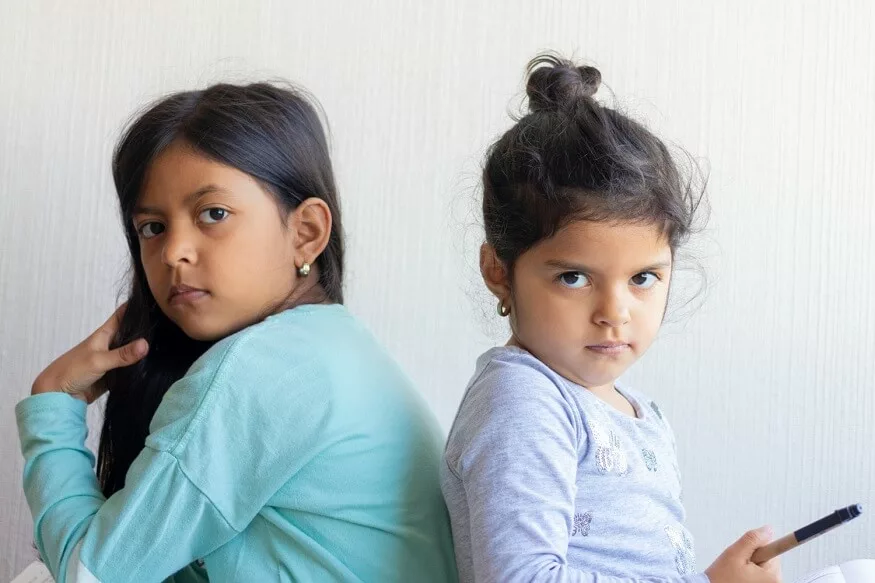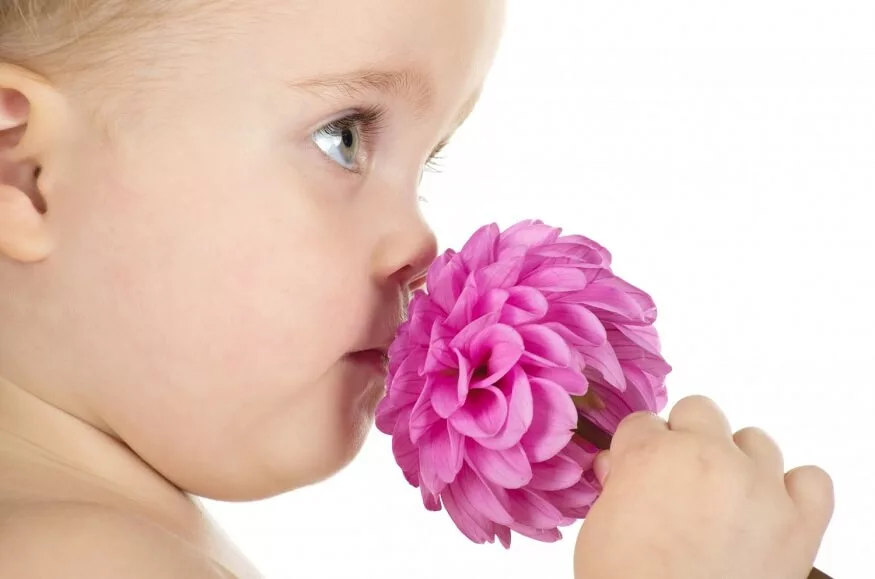The link between siblings is special and complex, containing love, rivalry, friendship, and perhaps a hint of jealousy. They go on a journey that shapes their identities and bonds as they grow up together inside the same family. A youngster learns valuable lessons about empathy, sharing, and understanding from their interactions with their siblings, which can be very spectacular. In this thorough examination of childhood envy, we’ll look at how the intricate emotional dynamics between siblings can occasionally result in this prevalent yet difficult emotional obstacle. Understanding and addressing childhood jealousy within the context of sibling relationships is pivotal for fostering harmonious family dynamics and nurturing emotionally resilient children.
Childhood Jealousy: A Natural Emotion
Childhood jealousy, often an intricate emotion to comprehend, arises when children perceive a threat to their standing within the family or to their relationships with loved ones. It typically emerges from feelings of insecurity, anxiety, or a sense of inequity. The manifestations of jealousy are multifaceted, including sibling rivalry, competition for parental attention, and envy of peer accomplishments or possessions.
Also Read: What is sibling rivalry? Causes and methods to get rid of sibling rivalry
Understanding the root causes
A variety of situations can lead to jealousy, including:
- Sibling Rivalry: As brothers and sisters naturally compete for their parents’ love, attention, and resources, sibling rivalry frequently develops and serves as a common breeding ground for jealousy. This sibling competition can sometimes become intense, fuelling feelings of jealousy as children seek recognition within the family unit.
- Perceptions of Inequity: Children may grapple with jealousy when they perceive unequal treatment or witness favouritism within their family. Whether it’s the division of chores, responsibilities, or parental attention, a sense of injustice can exacerbate feelings of inadequacy and envy.
- Life Changes and Transitions: Major life events such as the arrival of a new sibling, shifts in family dynamics, or relocation to a different home can disrupt a child’s sense of security and comfort. In times of change, jealousy may arise as children adapt to new circumstances and navigate their evolving roles within the family.
- Social Comparisons: Children often engage in social comparisons with their peers, particularly in realms like academic accomplishments or extracurricular achievements. These comparisons can be a breeding ground for jealousy if a child perceives that their own accomplishments pale in comparison to those of their friends.
How to deal with jealous siblings
- Open Lines of Communication: Cultivate a culture of open dialogue where your children can express their feelings of jealousy without fear of judgement. Validate their emotions by letting them know that it’s entirely normal to experience such feelings.
- Validating Feelings: Offer recognition and validation for your child’s emotions of jealousy, making them feel heard and understood. It can be calming and powerful to be appreciated.
- Cultivate Empathy: Guide your child in understanding the impact of their actions on others. Encourage empathy by discussing how it feels to be on the receiving end of jealousy.
- Set Realistic Expectations: Clear and consistent rules and expectations can mitigate jealousy that arises from perceived unfairness.
- Celebrate Individuality: Acknowledge and nurture each child’s unique interests and talents, emphasising that they do not need to compete for attention or validation.
- Quality One-on-One Time: Dedicate quality one-on-one time with each child to reassure them of your love and undivided attention.
Also Read: How to teach kids to share: Strategies and benefits
How to Stop Jealousy Between Siblings?
- Promote a Sense of Teamwork: Encourage collaboration and teamwork among siblings, demonstrating how collective efforts can lead to shared achievements and the strengthening of sibling bonds.
- Praise and Positive Reinforcement: Recognize and applaud your children’s endeavours and accomplishments, regardless of their scale. This reinforcement bolsters their self-esteem and diminishes feelings of jealousy.
- Establish Equity: Strive for an environment that is perceived as fair by addressing each child’s needs, preferences, and interests.
- Teach Conflict Resolution: Instil effective conflict resolution techniques in your children, emphasising productive approaches like communication, compromise, and taking turns.
- Be a Positive Role Model: Exhibit empathy, effective communication, and conflict resolution in your interactions with your children. Your actions serve as a valuable model for them to follow.
Effectively Dealing with Jealousy in Children
- Encourage Gratitude: Help your children focus on what they have and teach them to appreciate their blessings. This shift in perspective can redirect their attention from what they lack to what they possess.
- Develop Emotional Intelligence: Aid children in recognizing, understanding, and managing their emotions. Teach them to identify jealousy and employ constructive strategies to deal with jealousy in children.
- Relatable Stories and Examples: Employ everyday stories and examples that resonate with your children. This approach makes it easier for them to comprehend the negative consequences of jealousy and the advantages of positive behaviour.
Overcoming Jealousy in Children
- Boosting Self-Esteem: Elevating your child’s self-esteem is a journey that involves acknowledging their unique strengths and encouraging their pursuit of interests and passions. By celebrating their accomplishments, whether big or small, you instil a sense of competence and self-worth. Praise their efforts and guide them in setting achievable goals. Because of this increase in self-worth, they are better able to avoid the damaging consequences of envy and concentrate on their own development and potential.
- Encourage Independence: Fostering independence in your child involves providing opportunities for them to make choices and decisions. This helps them become more independent and improves their capacity for problem-solving. Encourage them in their ambitions so they can take calculated risks and grow from their mistakes. They become less dependent on peer comparisons and competitiveness as they grow more self-reliant and confident in their ability to make decisions.
- Celebrate Differences: Embrace and highlight the uniqueness of each child within your family. Celebrate differences as sources of strength and individuality. Teach your kids that it’s okay to be different from each other and that this is a wonderful part of who they are. By doing this, you turn the conversation from envy to admiration for what makes every child unique. This promotes a sense of belonging and unity in your family while diminishing the space for jealousy.
Also Read: Tips to creating a room for siblings to share
Real-Life Success Stories
Real-life success stories serve as a source of inspiration for parents. Learning from others who have effectively managed childhood jealousy and witnessing the positive outcomes can reinforce your determination to create a harmonious family environment.
Your Path to a Jealousy-Free Home
Creating a jealousy-free home is an ongoing journey, and it begins with a commitment to understanding, open communication, and supportive parenting. By applying the strategies outlined in this blog and adapting them to your family’s unique dynamics, you can pave the way to overcome jealousy in children and grow together in love and harmony.
Childhood jealousy is a natural and navigable emotion that can be effectively managed with understanding, open communication, and supportive parenting. By addressing jealousy in a compassionate and empathetic manner, parents and caregivers can empower their children to develop essential emotional skills, foster robust sibling relationships, and grow into self-assured, well-adjusted individuals. Remember that patience, empathy, and effective communication are indispensable tools for guiding your children toward a more harmonious and jealousy-free family environment.
At EuroSchool, we understand the importance of emotional development in children. Jealousy is a common and complex emotion that can impact sibling relationships and overall family dynamics. Our commitment to holistic education goes beyond academics; we aim to equip parents and caregivers with the knowledge and tools to deal with jealousy in children who will navigate the challenges of childhood emotions. Understanding and addressing jealousy in children is a vital aspect of nurturing well-rounded individuals who can build healthy relationships and navigate emotions effectively. We believe that a harmonious family environment and supportive parenting play a crucial role in helping overcome jealousy in children and develop essential emotional skills.










